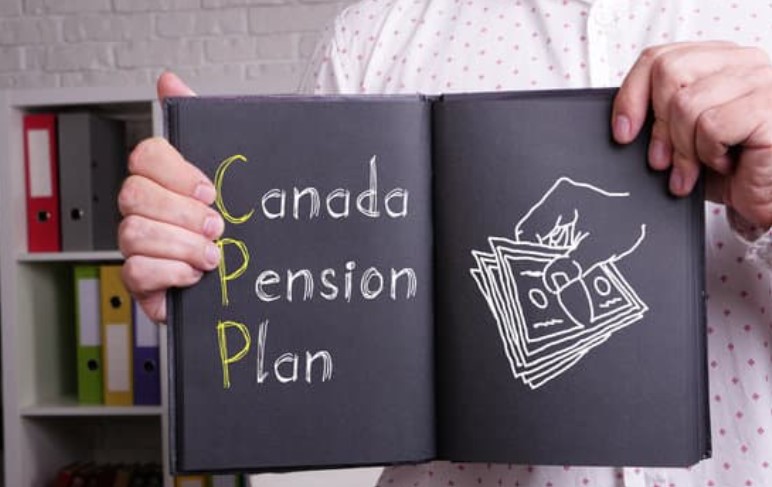Are you curious about CPP and how it can benefit you? Look no further! In this blog post, we will delve into the nitty-gritty of the Canada Pension Plan (CPP) – what it is, who is eligible for it, how to apply, and even tips on maximizing your CPP payment. Whether retirement is just around the corner or still a distant dream, understanding CPP is essential for financial planning. So let’s dive in and discover everything you need to know about CPP!
What is CPP (Canada Pension Plan)?

CPP, short for Canada Pension Plan, is a government program designed to provide financial support to individuals who have contributed to the plan throughout their working years. It serves as a form of retirement income and is one of the pillars of Canada’s social security system.
The CPP operates on a contributory basis, meaning that both employees and employers make regular contributions from each paycheck towards the plan. These contributions are then pooled together and invested by the CPP Investment Board to generate returns over time.
Upon reaching retirement age, which is typically 65 years old but can be as early as 60 or as late as 70 depending on personal circumstances, individuals become eligible to start receiving CPP benefits. The amount received depends on factors such as how much has been contributed over the years and how long an individual has made contributions.
But CPP isn’t just limited to retirement benefits. It also provides disability benefits for those who are unable to work due to a severe and prolonged disability. Additionally, in unfortunate circumstances where a contributor passes away before reaching retirement age, surviving spouses or common-law partners may be eligible for survivor benefits.
Who is Eligible for the CPP?
The Canada Pension Plan (CPP) provides financial support to individuals who have contributed to the plan during their working years. To be eligible for CPP, you must meet certain criteria.
You must have made at least one valid contribution to the CPP. This means that you have paid into the plan through employment or self-employment income. The amount of your contributions will affect the amount of CPP benefits you receive in the future.
You must be at least 60 years old to start receiving your CPP retirement pension. However, if you choose to begin receiving it before reaching age 65, your monthly payments will be reduced.
There are some exceptions where individuals may become eligible for CPP even if they haven’t contributed enough or reached a certain age. For example, survivors of deceased contributors and individuals with severe disabilities may qualify for benefits under specific circumstances.
It’s important to note that eligibility requirements and benefit calculations may vary depending on individual circumstances. It’s advisable to consult with Service Canada or a financial advisor for personalized information regarding your eligibility and potential benefits from the CPP program.
How to Apply for the CPP?

Applying for the Canada Pension Plan (CPP) is a relatively straightforward process. To begin, you need to ensure that you meet the eligibility criteria outlined by Service Canada. Typically, individuals who have made contributions to the CPP during their working years are eligible.
To apply for the CPP, you can choose from three methods: online application through My Service Canada Account, mailing in a paper application form, or applying in person at a Service Canada office. Whichever method you choose, make sure to have all your required documents handy.
When completing your application, provide accurate and up-to-date information about yourself and your employment history. This includes details such as social insurance number, birth certificate or proof of birth date, marital status information if applicable, and employment records.
Once you’ve submitted your application along with any necessary supporting documents (such as proof of birth), it will be reviewed by Service Canada. Processing times may vary but typically take around 6-12 weeks.
Keep in mind that it’s important to apply for CPP well in advance of when you plan on starting to receive payments. You can start receiving CPP benefits as early as age 60 or defer them until age 70 for increased monthly payments.
Remember to stay organized throughout the process and keep copies of all documents submitted for future reference. Applying for the CPP should be done carefully and accurately so that there are no delays or complications with receiving your pension benefits on time!
How Much is CPP and its Calculation?
How much is CPP and how is it calculated? These are important questions for anyone planning their retirement. Your CPP benefit amount is based on a few different variables.
Your average earnings over the course of your working years are used to determine your CPP payment. The more you earn, the higher your CPP payment will be. The age at which you start receiving CPP also impacts the amount. If you choose to take it earlier than the standard age of 65, your payments will be reduced. On the other hand, if you delay taking CPP beyond 65, your payments will increase.
The maximum monthly CPP payment in 2021 is $1,203.75. However, most people receive less than this amount due to various factors such as career breaks or lower income levels.
To calculate how much CPP you are entitled to, Service Canada uses a formula that takes into account the factors mentioned above. They consider your average pensionable earnings over a specific period and apply certain adjustments before arriving at your final benefit amount.
It’s worth noting that there are ways to maximize your CPP payment by contributing more during high-income years or by choosing to delay taking it until later in life when payments would be higher.
Understanding how much CPP you can expect and how it’s calculated is crucial for effective retirement planning. Consider consulting with financial advisors who specialize in pensions and make informed decisions about when and how to access those funds!
How to Maximize CPP Payment?

- Delay taking CPP: One of the most effective ways to maximize your CPP payment is by delaying when you start receiving it. The standard age for starting CPP benefits is 65, but you can choose to take it as early as 60 or delay it until 70. By delaying, you can increase your monthly payments by up to 42%.
- Continue working and contributing: Working beyond the age of eligibility for CPP can also boost your payment amount. Each year that you continue working and contributing to the plan will replace some of your lower-earning years, which could result in higher average pensionable earnings.
- Take advantage of drop-out provisions: The Canada Pension Plan has drop-out provisions that allow you to exclude certain periods from the calculation of your pensionable earnings. This means that if there are any low-income or zero-income years in your work history, they may be dropped out, resulting in higher average pensionable earnings.
- Coordinate with other retirement income sources: If you have other sources of retirement income such as pensions or RRSPs, consider coordinating them strategically with your CPP payments. By optimizing how and when you access different income sources, you may be able to minimize taxes and maximize overall cash flow during retirement.
- Consult an expert: Maximizing your CPP payment can involve complex calculations and strategic decisions based on individual circumstances. It’s always a good idea to consult with a financial advisor or retirement planning expert who specializes in Canadian pensions.
Remember that maximizing your CPP payment requires careful consideration and planning based on individual factors such as health status, financial needs, and future goals.
Conclusion
Understanding the Canada Pension Plan (CPP) is crucial for Canadians who want to secure their financial future during retirement. CPP is a government-run pension plan that provides income support in retirement, disability benefits, and survivor benefits to eligible individuals.
In this overview of CPP, we have explored what it is, who is eligible for it, how to apply for it, and how much you can expect to receive. We also discussed strategies to maximize your CPP payment.
So take charge of your retirement planning today and ensure a comfortable future through the benefits offered by the Canada Pension Plan!
FAQs on What is CPP (Canada Pension Plan)?
1. What is CPP and why am I paying it?
When a plan participant becomes disabled or retires, the CPP pays out basic benefits. The plan offers benefits to your survivors in the case of your passing. With the help of authorized calculation tools and the yearly CPP contribution rates and maximums, your employer will determine how much CPP to withhold.
2. Is it mandatory to pay CPP in Canada?
Between the ages of 18 and 70, every working Canadian is required to pay CPP contributions. For wages that fall within the Basic Exemption range and the Year’s Maximum Pensionable Wages (YMPE), employer and employee payments are equal.
3. Does CPP pay for life?
Your post-retirement benefit and retirement income will improve with each year that you make CPP contributions. The next year, we will automatically pay you this benefit. For the rest of your life, you’ll get it. When you turn 65, you have the option to discontinue making post-retirement contributions.
4. Why you likely won’t get maximum CPP?
You would need to pay the maximum amount toward CPP premiums for 39 of the 47 years you worked between the ages of 18 and 65 to be qualified for the maximum retirement benefit. In other words, during 83% of your working years, you must make the maximum contribution.
5. When someone dies what happens to their CPP?
A one-time lump sum payment is provided to the contributor’s estate as part of the CPP Death benefit. The executor designated in the will to handle the estate administration must apply for the Death Benefit within 60 days of the date of death if there is a will.
6. Who is exempt from paying CPP in Canada?
If the employee provides you with a completed Form CPT30, Election to Stop Contributing to the Canada Pension Plan or Revocation of a Prior Election, and they are at least 65 years old but under 70, you are not required to collect CPP from their pay.











